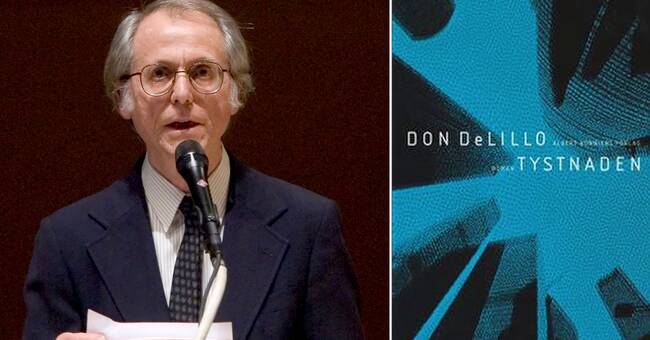Don DeLillo's small but leaden novel The Silence begins with a plane crash.
But that's not the thing.
It's typically DeLillo.
He only uses air travel for his hyper-detailed registration of our collective subconscious.
Every time we take a flight, of course, the thought touches that it could go bad, we are ready for it, just as we have always seen all disasters through media, fiction, images.
Here, things are going badly for the couple on their way home to New York from Paris.
He reads manically on the plane's display about cruising speed, distance.
She writes down the supporting words of life in a notebook.
"Words, sentences, numbers, distance to the destination".
Then everything turns black.
Cut.
In the novel, it's a Sunday 2022
- close enough to feel possible to reach out and plan your calendar accordingly.
Manhattan gets ready when all digital communication is broken, all electronics turn into dead things.
The couple survives, comes to the friends with whom they will celebrate the Super Bowl, a very American tradition that takes place on the first Sunday in February, that is.
The five people in the apartment in front of the TV screen try to understand the state of emergency that we got used to in the time of the pandemic.
DeLillo wrote Silence before Covid-19, and it is certainly spooky, but he has always prophetically moved alongside the times, writing about real disasters before they occurred.
Like the lookout for an old-fashioned ship, which warns of the icebergs at dusk.
He has devoted much of his time to
conspiracy theories, the stories behind real disasters such as the Kennedy assassination, September 11, Utöya, Trumps.
He writes about the systems on the border of what cannot be explained;
the mystique, the irrational, human fear.
The silence is eerie.
The image of Max who does not look away from the black TV screen but begins to "broadcast" like a contemporary mystic: loudly pronounce every advertising phrase, sales jingle, pod jargon, rhetoric and phrase stored in his head.
Everything that wants to be bought and used occupies our senses, distracts us, empties us.
The silence can be read as a picture
of the polarized western world in the 2020/21 season, but it takes at the same time - how is it possible in the neat format?
- a grip on time as if a hundred years was a long Sunday.
The novel's motto by Albert Einstein: "I do not know with what weapons the third world war will be fought but the fourth world war will be fought with stone and rod", echoes against the digital natural laws of our time: drone war, two-factor authentication, "too much of everything from a far too limited source code ”.
A new kind of magic, more vulnerable.
One day it will end.
What then?
Are we starting to talk to each other, get closer?
The silence suggests a new Pompeii.
Nothing happens, everything is frozen.
I immediately want to see this concentrated drama on a stage, but realize that I have to see it with others at a distance, in silence.

